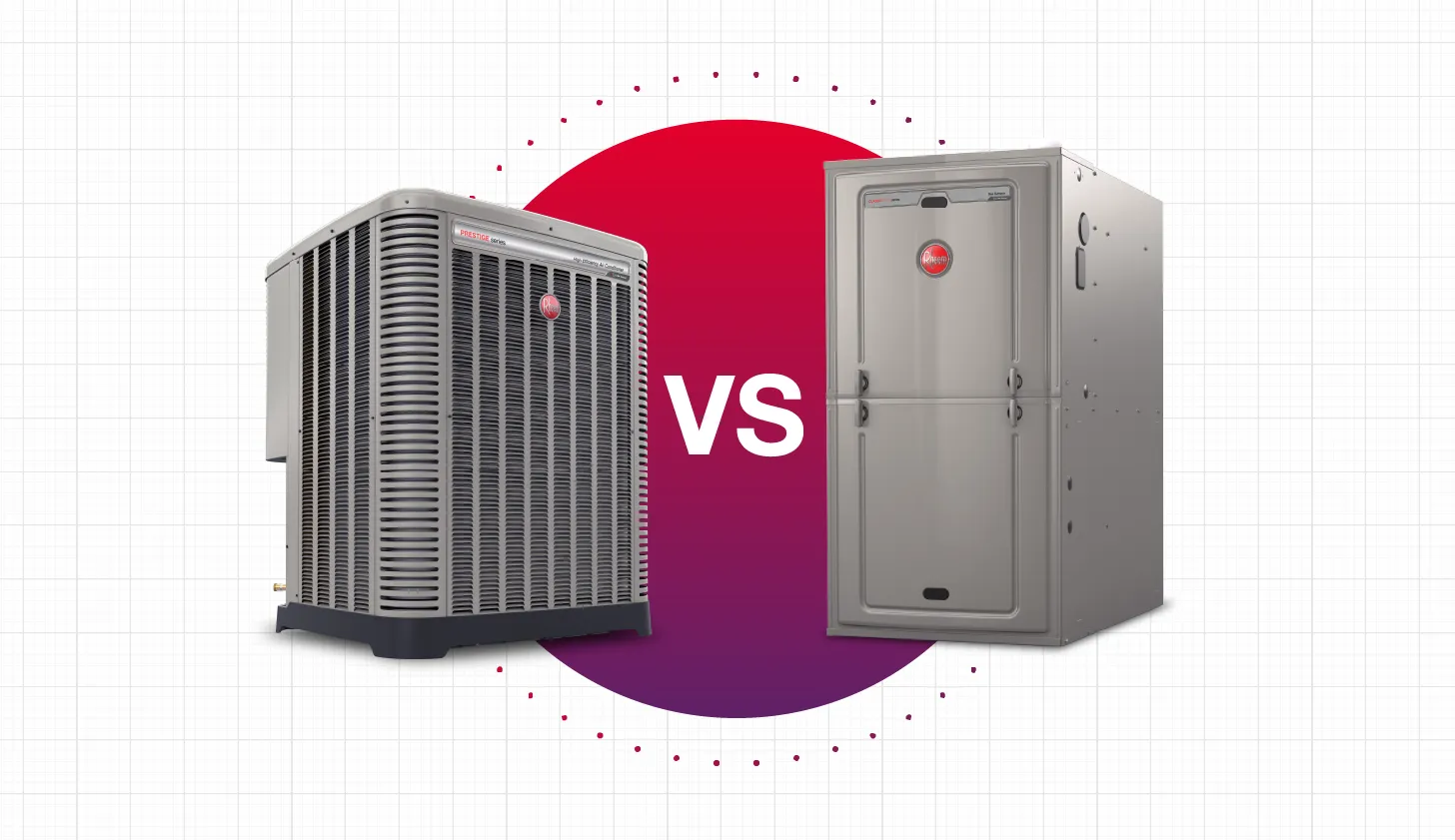Do Heat Pump Water Heaters Work in Cold Weather?
September 17, 2025
Heat pump water heaters absolutely do work in colder climates. As a matter of fact, the state of Maine has one of the highest adoption rates of HPWHs in the country! There are, however, considerations to keep in mind when installing a heat pump in colder climate conditions.
Let’s break down the facts, debunk a few myths, and help you decide whether a heat pump water heater is a good fit for your climate.
How Do Heat Pump Water Heaters Work?
A heat pump water heater works by pulling heat from the surrounding air and transferring it into the water tank. It moves heat instead of generating it directly, which makes it far more efficient than traditional systems. Modern heat pump water heaters can perform effectively even in cooler areas, as long as the ambient temperature stays above 37°F. This makes them ideal for installation in spaces like basements, garages, or utility rooms that are somewhat temperature-regulated.
For a deeper dive into how these systems work, see Rheem’s previous blog, “What is a Heat Pump Water Heater?”
Can Cold Weather Affect Heat Pump Water Heaters?
Yes, but today’s advanced models are designed to perform reliably even in cold conditions. Many ENERGY STAR®-rated heat pump water heaters, including those from Rheem, are built for cold climate performance. Hybrid heat pump water heaters have the ability to operate in heat pump mode when the conditions allow for it, but can utilize traditional electric heating elements to help meet hot water demand, particularly in colder weather. The ability to choose between multiple operating modes gives homeowners the ability to switch to High Demand mode during colder months when ground water temperature drops or ambient air temperatures are low. While energy use may rise slightly during the coldest days, these systems still help reduce heating costs throughout the year, making them an efficient and reliable option for winter weather.
Installation Considerations of Heat Pump Water Heaters in Cold Climates
Location is everything when it comes to getting the best performance from your heat pump water heater. Especially in colder climates, placing the unit in a conditioned space, such as a basement or utility room, helps maximize efficiency because the surrounding air is less impacted by outdoor temperatures. Proper water heater ventilation is also key, as adequate airflow ensures the system can operate effectively. Adding insulation around the unit and its pipes supports overall home winterization, helping to retain heat and reduce energy loss. For optimal results, work with a certified professional who understands where to install a heat pump water heater and is familiar with local codes and cold climate best practices.
For more from Rheem’s installation guidance, contact a local installer.
Environmental and Economic Benefits of a Heat Pump Water Heater
Beyond cold-weather performance, heat pump water heaters deliver significant economic and environmental benefits. They can reduce energy use by up to 70%, according to ENERGY STAR, leading to average annual savings of up to $576 and more than $5,700 over a 10 -year lifespan. This improved water heater efficiency not only lowers utility bills but also helps shrink your home’s carbon footprint. To get the best results, look for models with high energy factor ratings and ENERGY STAR® certification, both of which indicate strong performance and long-term savings. Rheem’s certified lineup includes some of the most efficient water heaters available, making them a smart choice for eco-conscious homeowners.
Is a Cold Climate Heat Pump Water Heater Right for You?
The answer depends on a few key factors. First, consider your climate zone—how cold it gets and how long the cold season lasts can affect performance. Next, evaluate your home’s insulation and winterization to ensure the heat pump water heater operates efficiently. Be sure to also take humidity considerations into account, as moisture levels can impact system effectiveness. Additionally, assess whether you have enough conditioned indoor space for installation, since heat pump water heaters require adequate airflow. Consulting a local HVAC contractor can help determine if a heat pump water heater is the right fit for your home and how it can help reduce heating costs.
Maintenance Tips for Winter Performance of Your Heat Pump Water Heater
Proper winter maintenance keeps your heat pump water heater running efficiently when temperatures drop. Schedule annual inspections to catch any issues early, clean or replace air filters to maintain airflow, and ensure the correct operating mode is set. Also, check that backup heating elements are working to provide hot water reliably during freezing conditions.
Conclusion
Modern heat pump water heaters are more than capable of handling cold climates, thanks to engineering improvements like hybrid technology and multiple mode operation. For many homeowners, especially those with suitable indoor space, a heat pump water heater offers a smart balance of efficiency, savings, and sustainability.
If you’re thinking about upgrading your water heater, now is the perfect time to explore whether a cold-climate heat pump is right for your home. Be sure to contact a local installer and check out Rheem’s rebate center to take advantage of financial incentives.







